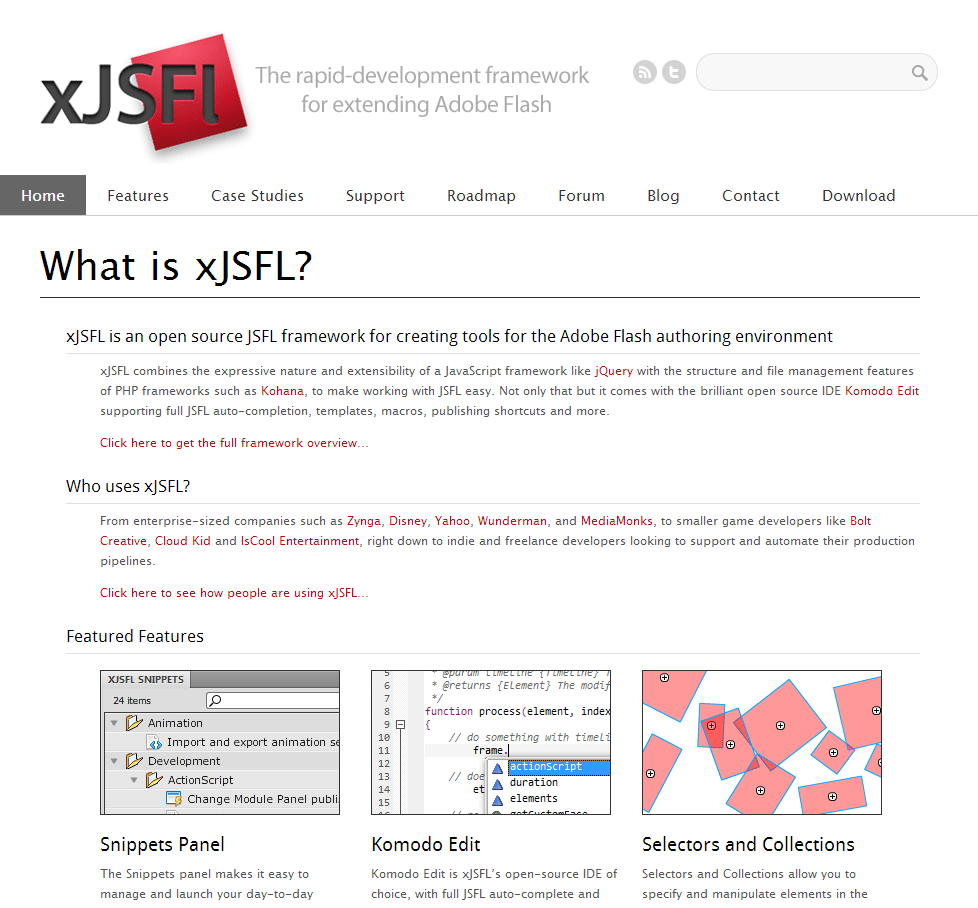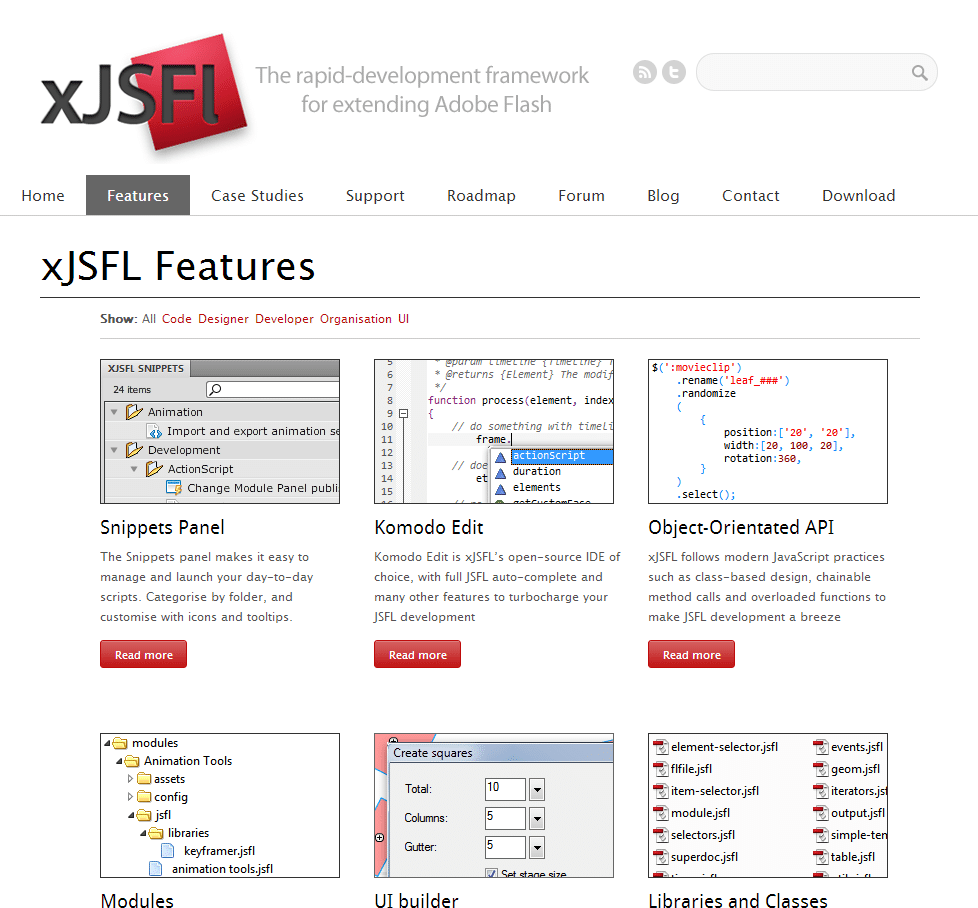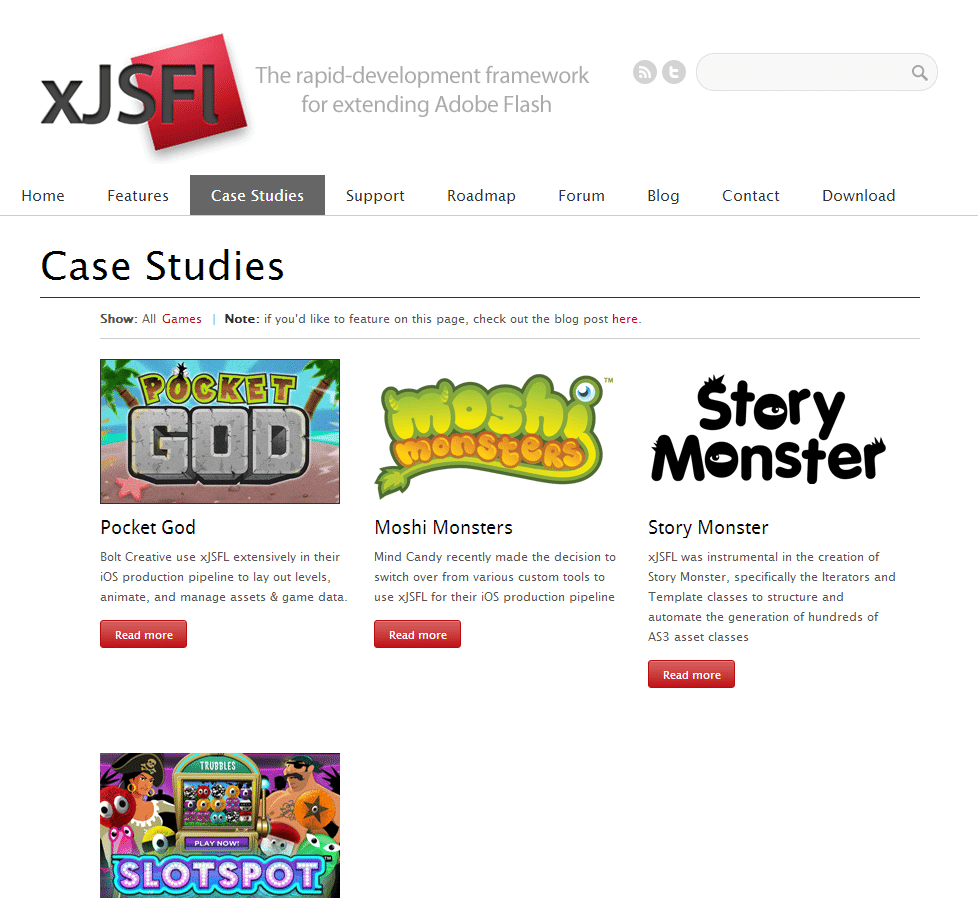xJSFL
JSFL framework to create tools for the Flash authoring environment
Overview
xJSFL is an open source JSFL framework for creating tools for the Adobe Flash authoring environment
It combines the expressive nature and extensibility of a JavaScript framework like jQuery with the structure and file management features of PHP frameworks such as Kohana, to make working with JSFL easy. Not only that but it comes with the brilliant open source IDE Komodo Edit supporting full JSFL auto-completion, templates, macros, publishing shortcuts and more.
Click here to get the full framework overview… (opens new window)
Who uses xJSFL?
From enterprise-sized companies such as Zynga (opens new window), Disney (opens new window), Yahoo (opens new window), Wunderman (opens new window), and MediaMonks (opens new window), to smaller game developers like Bolt Creative (opens new window), Cloud Kid (opens new window) and IsCool Entertainment (opens new window), right down to indie and freelance developers looking to support and automate their production pipelines.
Features
xJSFL comes packed with classes, tools, features and best practices (opens new window) that make using it a no-brainer if you are involved in any kind of Flash content production work. Examples include:
- The Snippets panel (opens new window), which makes it easy to manage and launch your day-to-day scripts. Categorise by folder, and customise with icons and tooltips.
- Komodo Edit integration (opens new window), with full JSFL auto-complete and many other features to turbo-charge your JSFL development
- Selectors and Collections (opens new window), which allow you to specify and manipulate elements in the Flash IDE in so few lines of code, you could swear it was done by magic
What does xJSFL do?
It manipulates stage elements and library items, iterates over timelines, layers and frames, manages files, user settings, builds interfaces, and provides a host of libraries and classes to accomplish everyday Flash tasks with an easy to use syntax and grammar you’ll really enjoy writing.
Why use xJSFL?
xJSFL has been designed from the bottom up to replace laborious syntax, and abstract repetitive tasks into elegant one-liners.
Developers can radically speed up their everyday JSFL development, gaining access to an eco-system of software, production-tested libraries, classes, techniques and best-practices to build more advanced, more powerful tools in a fraction of the usual time.
Designers can use the front-end features of xJSFL, such as the Snippets Panel, to more easily manage and run the commands they use daily, and gain access to a library of more powerful, interface-driven, xJSFL scripts.









